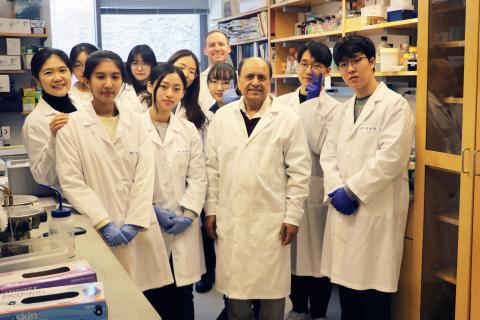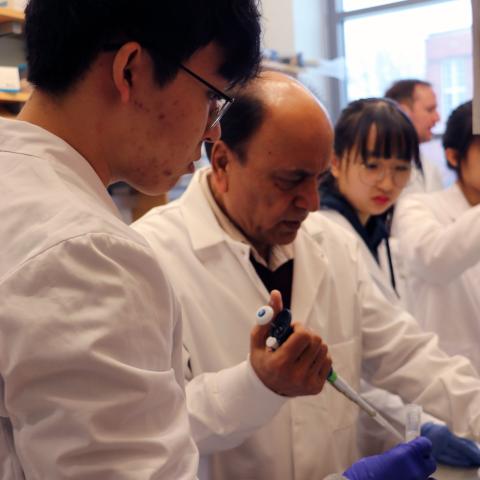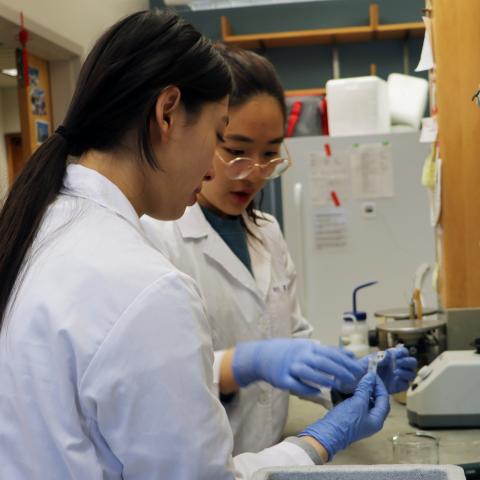
Professor Subhash Minocha hosted eight students from the Gyeonggi Science High School for the Gifted in Suwon, South Korea as part of the Science Research Internship Program (SRIP). The goal of SRIP is to set up a collaborative effort to provide research experience for selected students from GSHS at UNH and provide guidance for them to continue their research at GSHS.
The eight selected GSHS students spent a week at UNH learning the process of scientific research, interacting with faculty, graduate and undergraduate students, and getting a glimpse of life at UNH and in the New England region.

The program involved lectures, discussions, and lab experience with UNH faculty, to learn about current research in biotechnology at UNH, and to discuss future research possibilities for them back at GSHS. During this visit, the students learned simple tools of biotechnology, including working with microbes and plant cells, DNA isolation and its use in genetic engineering and sequencing, cloning of plants, immunology, the use of DNA for organismal population analysis and ecogenetics from the faculty and graduate students in Professor Minocha’s lab.
They also discussed some of the biomedical, industrial and environmental applications and ethical, moral, legal and environmental implications of recent advances in the field of biotechnology and genetic engineering of microbes, plants, animals and humans.

“We expect to expand this internship program with GSHS to other areas of science and technology in the coming years,” says Minocha, the SRIP program director. “It is expected that [the participating students] will continue their research at their school with mentorship provided by UNH faculty (and students) by staying in touch through electronic media. At the end, they will write a research report that could be submitted to science talent competitions and published.”